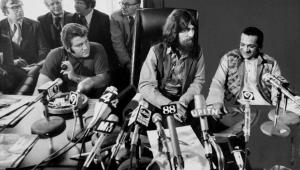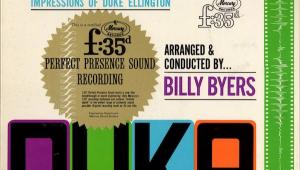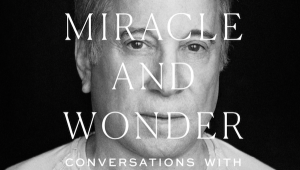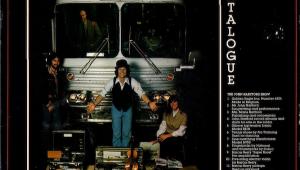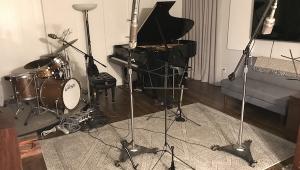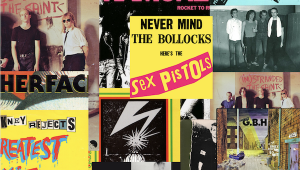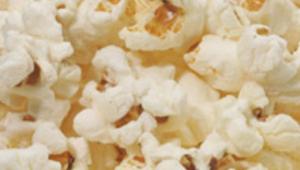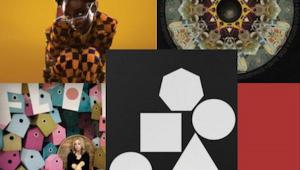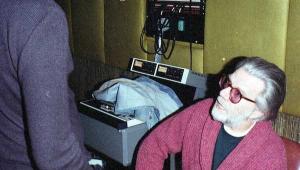Roger McGuinn Speaks With John Nork

RM: I just loved it and I kinda fell into it. I was playing it as a hobby and getting ten dollars a night at the coffeehouse.
TA: How old were you at this point?
RM: I was seventeen. And then I got hired by the Limelighters, at seventeen, and that kinda kicked me into the professional end of it and then I decided that I like it a lot. I've never done anything else since then.
TA: So you kinda jumped on it, and then the currents took you from there, huh?
RM: I kinda live my life in a very easygoing way and kinda go wherever the direction pushes me, you know?
TA: Were there many musical influences in your family?
RM: No. Not really. My folks didn't play; my grandmother played piano, but I didn't really get involved with that.
TA: So, it's just something you picked up pretty much soley on your own?
RM: Yeah. I got into it after hearing Elvis -- "Heartbreak Hotel."
TA: I read in one of those documents on the Internet about you that you attended school at the Chicago Old School of Music.
RM: The Old House School of Folk Music.
TA: So, basically, you did that, and then you did some work with Judy Collins and Bobby Darin and things like that, and then the shift from going to folk to rock was touched off by the experience of the Beatles?
RM: Well, it was a complicated thing. When I was working with Bobby, he gave me some advice about the business. He said, "rock and roll is really where it's at. After you get into rock and roll you can kinda do whatever you want." That was his entry into the business. He was a movie star and all that.
TA: A high credibility source.
RM: Mmm-hmmm. So, I thought I would pursue rock and roll, and I was working for him as a songwriter in the Brill building, writing rock songs. And then, the Beatles came out and they really steered me into their musical direction. It was kinda folky. I mean, what they were doing was: they were using folk music chord changes along with the rock and roll influences of Chuck Berry and Elvis and all the other 50's rock influences, so I really could relate to it because I'd just come out of that 50's rockabilly thing, and gone to folk, and it was exactly what I was into. So, I started doing folk songs like that. I was down in Greenwich Village and then I went to L.A. and started doing the same thing and that's where Gene Clark heard me, and decided that it would be kinda fun to write songs with me, so we wrote some songs together and [David] Crosby came in, and then we got [Chris] Hillman and [Michael] Clarke, and a record deal, and it all sort of fell together.
TA: Did you and Gene ever perform as a duo for any period of time?
RM: No, we never performed. We were just sitting around the folk den at the Troubadour. There was a little coffeehouse in front and we used to just sit around and play our songs. One day Crosby walked in and started singing harmony, and that sounded good, and he knew a guy who had a recording studio that we could use for free. So, we went over and met his friend [Jim] Dickson, and we started working with him. He became our manager ...
TA: And mentor?
RM: Kind-of; yeah. He became our manager and had the recording studio that we used every night at midnight for free, and gave us a lot of experience.
TA: Do you feel that that really accelerated your defining the sound of the group and your musical evolution?
RM: If we hadn't had those tools to work with, it would have taken a lot longer. A lot of bands have to work on the road for years to get the kind of sound we recorded together in about eight or nine months.
TA: One of those FAQ's involves the twelve-string Rickenbacker that you said you originally saw George Harrison use in one of the Beatles' films.
RM: I did play an acoustic twelve with all of these other people -- with Bobby and Judy. Then, when I came to LA I was playing an acoustic twelve and I think we saw "A Hard Day's Night" once, and I got a pick-up for my acoustic twelve and it wasn't quite getting the sound, so we went back and I noticed that George was playing a twelve-string Rickenbacker, so I got one of those and it made a big difference in the sound.
TA: But you were partial to twelve-strings even prior to that?
RM: I've been playing twelve-strings since the 50's. I got into them in '57.
TA: You liked the octaves and the tones that they had?
RM: Pete Seeger and Frank Hamilton and Leadbelly -- all these influences got me into the twelve-string. You know, the octaves ... they make a bigger sound. Especially Bob Gibson: he was a twelve-string player, and he was one of my early idols in folk music. I used to go to see him.
TA: Having been inspired by Harrison to get the Rickenbacker, you got one, but I think it's safe to say you developed your own definitive style very unlike what he did with it and that's one of the trademarks of your musical history.
RM: I've applied techniques that I learned on the five-string banjo to the twelve-string Rickenbacker, and it gave it a different, kind of a rolling pattern. When I learned how to flat pick, which I did after I got the twelve, I started getting interested in jazz. Crosby turned me on to John Coltrane, so I started trying to emulate Coltrane licks on a twelve-string. That's where "8 Miles High" came from.
TA: The Tambourine Man and Turn, Turn, Turn ! albums have a unique, very chime-like, ringing tone to the twelve-string. What did you do electrically or electronically to get that sound?
RM: We used a lot of compression. That was the main thing. Compression and EQs, kinda cranked out to the high end. A l ittle reverb; actually, we used an echo chamber. It was pretty digital.
TA: Kind of like an EMT plate, maybe?
RM: No. I don't know what that is.
TA: It's the old style reverb used in studios back in the 60's.
RM: We didn't even use that. What we used was: we recorded these things in an old studio, Columbia Record Studio A in Hollywood. It used to be Jack Benny's radio program studio. They used to record marching bands in there. It was a huge barn of a place. They had these echo chambers that were physical rooms that were rounded off at the corners. They put a speaker at one end, and twenty feet away, they'd put a microphone. A Telefunken or a Neumann microphone, and then they played the track through the speakers and recorded it through the microphone, and it would have an enormous natural echo. That was how we got our echo sounds on the early records.
TA: It was natural echo.
RM: Like when you sing in the shower.
TA: Everyone sounds good in the shower. You were at World Pacific Studio --how heavily did you get into the recording technology side of things. Were you interested in that back in the beginning, and are you still, now?
RM: That was beyond my reach. They wouldn't let me play with it, because they were the big guys and I was just a kid. They were really very guarded about these things. They really took them seriously. I remember back at the Columbia studios, the guys were really strict about how you couldn't touch the knobs on the boards. And one time I did -- I did a fade, a practice fade, and they walked out. Although I would have loved to be involved in the recording end of it, I wasn't allowed to.
TA: There's a controversy in the recording industries about analog versus digital. Do you have a viewpoint or experience?
RM: I've been playing with both for a long time and, you know, analog is great for some things, like getting a good kickdrum sound and a good bass sound. It seems to gather the fullness, the punch of bass better than digital. But, for overall sound, digital does a great job. It's clean, you don't have any background noise, and it's really good on a lot of frequencies, if you use good A-to-D converters and good equipment. I like 'em both -- they both have a place. I wouldn't say one is better than the other. As far as CDs versus vinyl go, CDs are a lot quieter than vinyl, but they don't have the warmth ... although these twenty-bit CDs have a little more warmth than the old sixteen-bit.
TA: I absolutely agree.
RM: They're getting closer to that vinyl sound, but vinyl's got all those pops and scratches. You're never going to get rid of those no matter how good your equipment is.
TA: It's interesting now that this cutting -edge technology, the digital, is circling back, trying to have some of the qualities of analog. You wouldn't think you'd be going back to an older technology.
RM: They were just so excited about being able to do it at all that they were putting up with some inferior sounds at first. Now they're getting pickier about that. That's what's good about these reissues -- the source material is excellent.
TA: Do you have a home studio or a project studio?
RM: I have a hard drive recorder.
TA: There's a certain flexibility with those that analog never had.
RM: It's wonderful. I love the nondestructive editing features -- being able to clip and paste tracks around. If you get a great guitar lick, you can move it down the road to all the different places you want it.
TA: I'm moving off my chronological sequence here, but you've got a site called the "Folked-in" on the Internet where you're preserving your catalogue and some of the more classic folk material from the past.
RM: I put a traditional folk songs up there every month, and it's an entire performance. It's eleven kilohertz, and the finals usually come out to be a meg and a half. I do it on my digital hard drive recorder -- it's a multi-track -- and I dub it down to the mono.
TA: It's a nice use of the technology to preserve something like that.
RM: I got the idea because I wanted to do a folk album and I felt that there would probably be a very limited market for such an album. It's sort of a hassle to go in the studio and record it, and then put it out -- all these middlemen involved -- but the ultimate result that I wanted was to preserve the material. So, why not put it out for free? Everybody likes free stuff on the internet.
TA: We're back at the early era now -- what was your reaction when Jim Dickson first brought "Tambourine Man" into your lives?
RM: We needed a hit single. We only had a single deal with Columbia, it wasn't for an album.
TA: So, it was kinda sink or swim with that one piece of music?
RM: Exactly. So, Dickson was hanging out with Paul Rothchild, who was a producer at that point for folk music. He used to scout around and he was talking about some sessions with Dylan he had recorded with Rambling Jack Elliot and they had this song, and they couldn't use it because Jack was out of town. The rumor was that he was really drunk. And Dickson heard about that and he said to Whitmark and Sons, (Dylan's publisher,) and he got the acetate of it, and he brought it to the studio and we were all standing around in front of these speakers and Dickson played it for us. It was in 2/4 time, about 5 minutes long, and Crosby immediately piped up and said, "I don't like it, man! It's that 2/4 beat! It's never gonna play on the radio!" And so I said, yeah, what if we cut it down to one verse and put a Beatle-beat to it, and I came up with a little lick for the front.
TA: And what a wonderful piece of music it was. In the remix of "Tambourine Man" on this reissue, for some reason your twelve-string was mixed way too low. I was wondering if you felt that way when you played the tape.
RM: I didn't mind the level on it so much as the EQ. I think the EQ was a little too treble for my tastes. I don't know if they were going for the original or what, but I don't like it that thin.
TA: Given that, it was nice to hear the true stereo mix, in my view, for the first time.
RM: Melcher didn't believe in stereo.
TA: I always wondered why with those first few albums, the stereo sounded worse than the mono.
RM: Melcher thought stereo was a gimmick that would fade away -- a passing fad.
TA: What did it feel like for you when you first heard that song on the radio?
RM: Actually, when I first heard it, it was in the studio after we did it, and I was blown away. I couldn't believe that we had done that ourselves. Of course, it was a studio band, and that's why the track was so good and powerful, but the vocals were great after we did it, it was so clean it sounded like someone else's record. I was really thrilled with it.
TA: Were you nervous, cutting it with those eight session players?
RM: I was scared to death, like a little kid. They were going, "Aw, don't be afraid, it'll be okay." They were really supportive and nice about it and I was really nervous. The next day when we were doing the vocals, the microphone weighed about five pounds, and I had this really heavy feeling in my chest. We got through it okay.
TA: When you knew it was a success and you heard in on the radio, was that a good feeling?
RM: It was, except that we were broke. It didn't connect. I was walking on Hollywood Boulevard and I heard a car go by with the song playing and I went, "Wait a minute! There's something wrong here!" I didn't have any money, and I'm walking in these dirty jeans and there goes a convertible down the street playing my song.
TA: Was there a problem with the other members of the group when session players were used?
RM: They weren't very happy about it, but I think it was for the best. It wasn't that strong a recording band at first, and we did need a hit.
TA: Did you guys have to make a stand to get the other people in the group to play on the album?
RM: Crosby really yelled and screamed about it. There was never really any intention of using studio players beyond the single, so that was the only time we were going to do that anyway.
TA: How would you rate or evaluate all of the different producers you worked with?
RM: I loved Terry. He had a real feel for the music. He was a little bit of a spoiled Beverly Hills kid, so it rubbed people the wrong way but I could relate to him all right. The politics of the time sort of got Terry moved out, thinking that maybe Dickson would be our producer, but Columbia didn't have that in mind. They assigned us Allan Stanton, who was really just kinda a square, unhip old guy. He was totally out of it. He was like a caretaker -- he would keep me after school, asking me what's wrong with Crosby.
TA: That's a tough assignment, huh?
RM: That faded away, and Terry Usher was great. He was very imaginative and fun, fun to work with. He actually contributed musically.
TA: One of the things that's amazing about the Byrds to me, especially in light of current recording and recordreleasing practices is that you did these first four CDs in basically two years, all that material in that short a time with such a high level of quality. It's remarkable.
RM: We got pushed into it. I think there's something good about that kind of pressure because it does force you to become more productive than you would ordinarily be. It was like the old Hollywood studio system where you have to crank them out, for better or for worse.
TA: So you had contractual obligations to Columbia for a certain amount of productions?
RM: Twice a year.
TA: Why do you think this music, even the older stuff with Tambourine Man and Turn, Turn, Turn albums holds up so well today, thirty years later? When you look at the charts of the Top 40 singles back in 1965, most of it's really kind of humorously dated, but this stuff really holds up well. What do you attribute that to?
RM: It's rooted in folk and folk is a timeless art form. It's lasted for centuries and even if you change the beat and some of the instruments, it's really still folk music.
TA: Did you have any sense of the longevity and impact when you were doing it?
RM: We were just trying to keep the beat. We were coming from a folk background where the beat wasn't really an important factor. But in rock, the dancers would fall down if you didn't keep the beat. We had to learn how to play in rhythm. That was our main concern, really.
TA: Let me ask you to comment of what you think are the weakest and strongest tracks on these CDs, and any memories you may have about them. "All I Really Do:" that was released as a single. Is there a story to go with that, with Sonny and Cher and things?
RM: Sonny and Cher did more of the Dylan version of it, with the 3/4 time -- they kept all the verses. We tried to make it a 4/4 beat, and turned one of the verses into the bridge. I think it kinda weakened it. In hindsight, we should have kept it the way they did it. Oh well.
TA: Did Dylan have any comments about them having a larger commercial success with it?
RM: He said, "You let me down, man."
TA: Who chose the material for the records?
RM: Terry chose. It was his decision -- like he turned down "You Showed Me," which became a really big hit.
TA: What are your feelings about the Mr. Tambourine Man album overall? Was it one of your better ones?
RM: I like it. I like the period that it represents. It was young and fresh and starry-eyed and laughing.
TA: Do you feel that your albums were overly "Dylan-ized?"
RM: I think Dylan wrote the best material of that time period. We only did four of his songs out of twelve -- that's not so bad. Gene was writing like crazy.
TA: After that album, it was time to do another single. You originally recorded "It's All Over Now, Baby Blue," is that right?
RM: Dickson wanted "Baby Blue" and Melcher wanted "Turn, Turn, Turn." Melcher snuck "Turn" out and released it to the radio and it became a hit. It took about 75 takes to do that song. Michael couldn't keep a beat. That was a problem. Crosby and I worked out the intro; the chords and all that.
TA: Did you use fingerpicks back then?
RM: I used my fingernails, but I found that over the years fingernails were not reliable on the road because you'd be out and open the car door and they'd snap off and you'd have to play concerts that night. I used to carry fingerpicks for that kind of emergency, but now I use them full time. I use a Hurkow flat pick, 150. And I use Dunlop fingerpicks.
TA: You've got two versions of "Times They Are A-Changin'" here. Do you have any feelings about liking either one better or the experience of recording the song?
RM: I remember the Beatles were in the studio for one of them. That kinda put a lot of pressure on us. The other take is not a bad sounding track. I prefer the one that's not on the record.
TA: Do you think this album was stronger than Tambourine Man?
RM: No. "Oh, Susanna" was too silly and "Wait and See" is a real bubblegum song, and "If You're Gone" is kinda slow and boring. "Satisfied Mind" belongs on a different album. Dylan liked "Lay Down Your Weary Tune." He put that on and said, "Hey, this sounds really good. This has some feeling. Before I heard you do this, I thought you were an imitator but this has some soul." It was a nice compliment.
TA: So, basically, you think the stronger tracks are at the beginning of the album, and the ones towards the back aren't as strong?
RM: "Turn" is strong, "It Won't be Wrong" is strong. "Set you Free," "Weary Tune," "He Was a Friend of Mine" and "The World Turns All Around" are. You could almost leave off the rest of 'em.
TA: And maybe substitute in a few of these alternates like "She Don't Care About Time."
RM: That would've been a good thought. And ... let's see, what else?
TA: "Baby Blue," maybe. How do you feel about hearing that after all these years?
RM: I don't know. I like it.
TA: I thought it sounded good, too.
RM: Nice job on that.
TA: It makes you wonder why it got pulled.
RM: Yeah, it was politics.
TA: Aw, okay. You did another version of that in the later years with the Clarence White Byrds, right? Much more of a restrained, more of an acoustic version.
RM: (sings) It's all over now, it's all over now ... that's a Terry Usher arrangement.
TA: Okay.
RM: No, no, that was with Melcher, wasn't it?
TA: Yeah, I think Melcher wrote that.
RM: Melcher wrote it down, and then repeated the "it's all over now" part. That's definitely the Melcher arrangement. I knew it was somebody else's arrangement.
TA: I see. Okay. Here's another mystery track here: "Stranger in a Strange Land." What's that?
RM: Oh, you know ... Crosby just liked the book and he was writing a song about it. I think there were going to be words and he never got around to writing them, or we just didn't record the words. I don't know if there were words or not.
TA: There's some interesting chord changes in that song in certain spots.
RM: I'd have to listen to it again.






